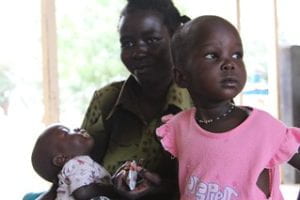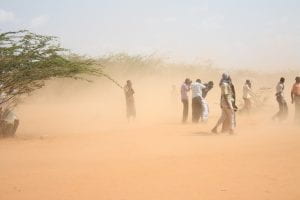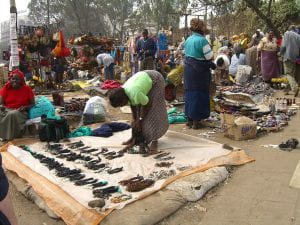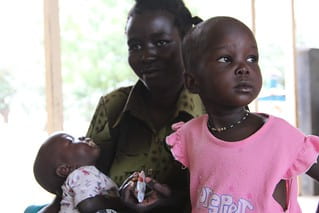by Grace Ndanu
In Kenya, every person is assigned their duties right from birth. When a girl is born her room is painted pink, her toys will be dolls, a house and house essentials. On the other hand, the boy’s room is painted blue and his toys are cars, a spider man and a fire fighter. You will know a girl even when she is a day old because she will be dressed in an oversized dress and a pink or red one for that matter. When she grows up she is taught how to wash clothes, the house and utensils. She is also taught to cook fetch firewood and water, and believe me, no matter how young the girl is she will never complain. The boys sit on the dining area waiting for food. They are taught to stay and wait. For nomadic communities they start going to take care of the cattle as early as age of five. For the other communities they are allowed to play all through the day until they are sent to the shop to get something.

In the world of Labor, women have triple roles while men have only one role. The communal and reproductive roles are common among women, and for those who are lucky there are productive roles. I am saying the lucky ones because there are those who are educated and others are blessed with good husbands who allow them to go work and keep their money. In a pastoralist setup the women wake up, go milk the cattle feed them, and also may go herding. When a time comes for the cattle to be sold, it is their husbands who do that and decide what the money will be used for. In a farm setup women are involved in every activity, starting from planting to harvesting but they are never involved in selling the produce or decide what the money will be used for.
I stay in the world of the Masai people who mainly are pastoralists. I have observed that the drought has disordered their traditional system of life, forcing many women into business for the first time. I was walking to a shopping centre where I found a woman doing what a few years ago would have been unthinkable from a woman of her tribe. Shopping for a sheep and a cock. The lady examined her options carefully, pausing at a skinny sheep and a light weight black cock. Feeling the sheep on her arms it was not worth 6000 Kenyan shillings. Also the black cock wasn’t worth 1000 Kenyan shillings. The owner who was also a woman shook his head, I assumed the bargaining power of the customer was enough, I saw the lady left, I assumed that she will be back when the market favours her. I went home with a lot in my mind…
The Masai culture is really rooted, which makes it hard for a woman to be seen doing business, because they spend their time taking care of the children, fetching water and firewood and take care of the homestead. And now we have just witnessed two women doing business, in my thought it was a good thing. Gender roles are so strict that men often prohibit their partners from handling money or even saying their husband’s names in public. Now, for the first time in history, it is slowly becoming okay for Masai women to work for money. I have also heard that in the most interior parts of the Masai communities there is a market day, and people who are mostly there are women, they are both sellers and customers. And this is not because men have changed their perspective on gender roles. Instead climate change has made it so because there is no other means for them to survive. Due to the increasing drought, men leave home for months searching for pasture with their herds leaving their wives not only to manage the households but also to earn enough money to live while they are away.

The already brutal dry season has intensified in recent years, killing more vegetation, animals and people than before. By my estimate, harsh draughts have reduced the Masai’s livestock by up to 80 percent. The little resources have triggered fights with neighbouring communities, and armed raiders usually steal what remains. With the new way of life now the Masai women have started up jobs once reserved for men such as trading for livestock. The trend of women engaging in paid labour is not limited to Masai women, even in parts of west Africa are taking on once forbidden roles because so many men have migrated in search of work and no one knows when they will be back. At some point they leave, get some work and forget their families and instead of going back home they remarry leaving the other family. Balla Sidibe, the country director for CARE in Mali said that several men of the Kayes region in Mali have left and therefore women have taken over farming duties. This is the responsibility they never would assume before. Traditionally, “there was the belief that only men can do the hard work,” Sidibe added. “But in reality, the women are the ones doing that and producing for their families.” In Northern Ghana according to CARE study, women are also doing greater workloads, which leads to discrimination by men. At the same time they reported that the women have greater confidence in decision making matters and men for the first time see women as capable of participating in productive work and contributing to the family.
I believe the shift of women managing their own finances is leading to other changes too. A gender professor at the university of East Angalia said that the Borana women whose gender roles are alike that of the Masai, some women are questioning the value of marriage since they found out they can live perfectly fine without their husbands because they cannot support their families as they once did.

Development organizations and non-profits organizations across Africa see these shifts as a golden opportunity to empower women economically and socially. Because they will have an opportunity to run their families and businesses without any assistance. Empowerment for women is a double edged sword because they will be financially stable and at the same time it will give women get out of abusive relationships because they will understand that they can do well on their own. Through this women will own properties, they will make sound decision regarding the properties, they will live a good lifestyle and they will be able to take their children to good schools. I hope that as women take more responsibilities, they will also take role in leadership, such as mediating the resource related matters troubling pastoralist communities due to drought.

